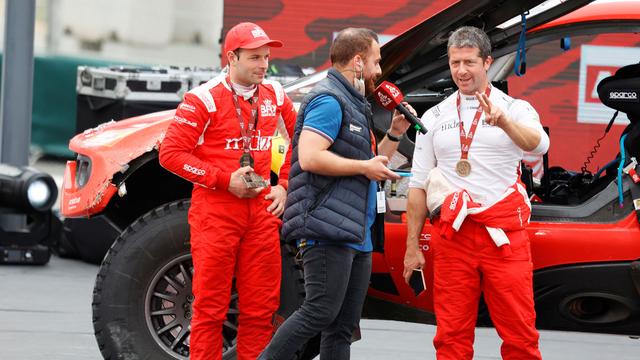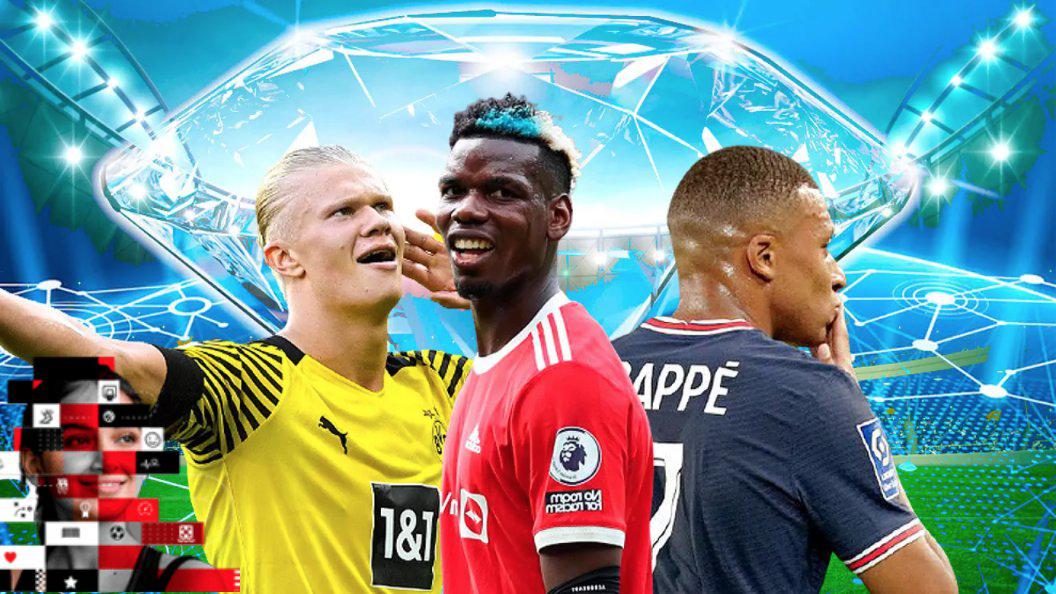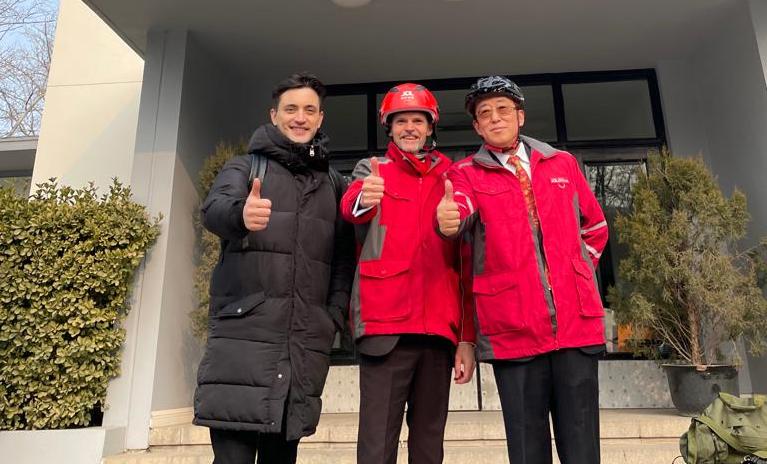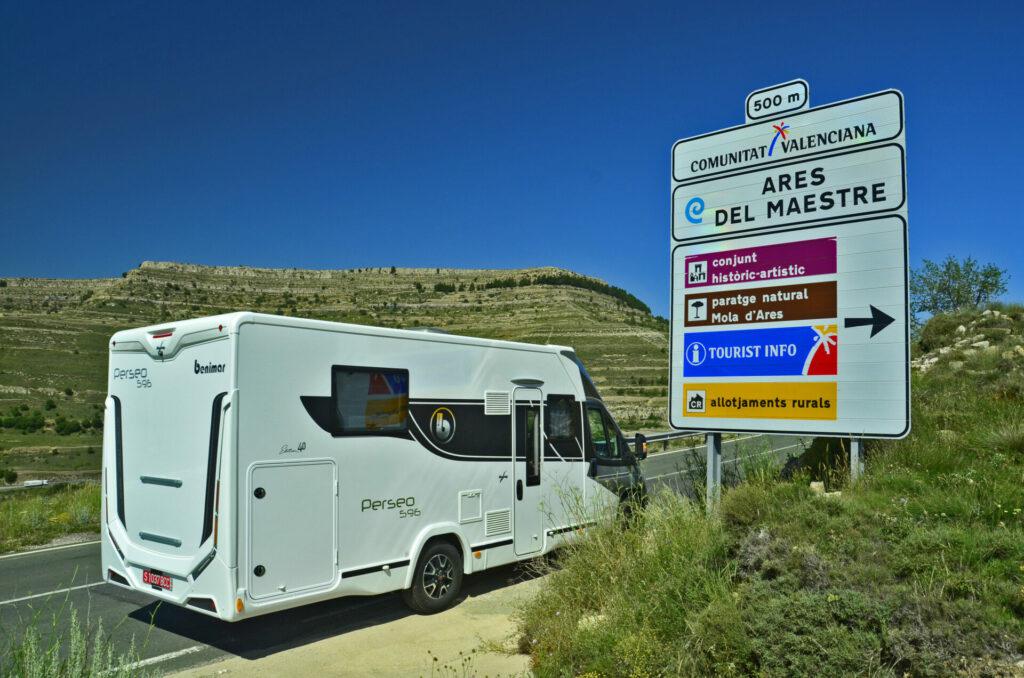Home → fancy clothes → From rubbing shoulde...
From rubbing shoulders with death in Africa to roasting strips on the road: the craziest anecdotes of Orly Terranova, the Argentinian Dakar Rally record holder
As night fell in the Bisha camp, in the epilogue of the 2022 Dakar Rally held in Saudi Arabia, Orlando Terranova from Mendoza fulfilled the ritual of sharing the stove with his teammates before participating in the drivers' meeting, which took place he does daily in the open air and which anyone can join, as if it were an open town hall. He was satisfied because he was one stage away from achieving the best historical result for Argentina in cars , the category that defines the general classification of the race. The fourth place finish that he achieved was the culmination of a great performance with the prototype of the Bahrain Raid Xtreme (BRX) team, cars built by Prodrive , an English factory dedicated to the design and construction of sports vehicles.
When the competition was played in Africa it was almost a utopia for the Argentines. But Orly continued his career at a time when the local media gave him little coverage, without social networks and through a magazine he began to internalize himself. He left the enduro, in which he was champion, decided to embark and together with two Chileans opened the doors of many Latin Americans. When the race was suspended in 2008 due to terrorist threats from Al-Qaeda and reached South America, he became one of the leaders in the region and began racing in cars.
Upon reaching its ten editions, the Mendocino received from Amaury Sport Organization (ASO), the company that organizes the event, the distinction of "Legend of the Dakar Rally" and that is why the yellow reference appears in the list of pilots. In a relaxed setting, the 42-year-old pilot accepted the dialogue with Infobae and recounted his memories since that debut in 2005.
-How do you become a “Dakar Rally Legend”?
-Uff… There were two on motorcycles in Africa, all from South America (eleven) and the three in Saudi Arabia. A lifetime. As a young man and an adult I am spending it on the Dakar, every January and although one gets tired because it gets bigger, it's nice. But the Dakar has to catch you, if you don't like it, if you don't feel it, it's not a place to come, you're uncomfortable and especially on motorcycles or quads . Already when you make the jump to a car you are a little more comfortable and more so when you are with a competitive car. This Dakar I had a great time. The previous one was very ugly, we arrived and we couldn't train, the car didn't work and I've enjoyed this one. I rediscovered the passion to go through the desert, to push, to go for more.
-How did you come to run in Africa?
-In September 2003 I wanted to register for the 2004 edition and they told me “you're a year late”. So I started preparing for 2005 and I waited all year and worked on it and trained it with Carlos de Gavardo (remembered Chilean pilot), who had a heart attack and died (in 2015). With his father and with Pablo Levalle (another trans-Andean runner) we made a group of Latin Americans. At that time there was no roadbook, there were no rally bikes, it was a very small tribe. We did a rally called “Patagonia Dakar”, we went to the “Desert Rally” in the north of Chile, we camped in Iquique, but I still arrived poorly trained. I arrived with a few kilometers, without a (route) sheet and I remember that crossing on the boat to Morocco as if it were today, the cold night in Morocco and I stayed in Mauritania, my clutch broke. Stay there at stage 11/12. And I went in 2007 also for the rematch and I couldn't finish either. I couldn't finish in the first one in Argentina either, and only in 2011 with the Mitsubishi did I finish. The family was incorporated, meeting people and you are learning. This is a complex sport, where the greatest performance is in older people, because you have to understand a lot about the dynamics of the race, it's long, that it's not just about winning stages, and that sometimes you have to go a little slower, especially all because our body is strong for resistance from 35/40 years old. Almost 20 years of my life have been dedicated to this in every January.
-What did your family and friends tell you that you were going to run the Dakar in Africa?

-That he was crazy. The rally followed him a lot and very delayed he bought the Motor magazine, because at that time there was no Instagram, Twitter, Facebook. I was looking for photos and I came from enduro, I had run the Six Days (one of the strongest international events in the specialty), Latin American champion, we had gone to many places and I liked it. And in my house they know that when I go to one side it is very difficult to stop and my mother followed me instead of blocking me. They followed me with madness and my family went to Barcelona at the start. It was very cold. Pablo Levalle, a Chilean, is a friend of mine and he finished. Also from Gavardo. That was the path of many who saw us to run and it's like we were a spearhead. It was because of the passion, because of the madness of enduro, the mountain.
-What anecdote do you remember from Africa?
-I remember that when I left I was stranded at a checkpoint where the helicopter took me with the motorcycle dangling, and I offered money to a local to get me a taxi, and after three hours, when I had already lost any hope of to come, a guy fell with him with a white Mercedes, I gave him his tip (the local) and I negotiated with the driver of the car -he was a school teacher- so that he would take me to Nouakchott, the capital of Mauritania. The guy took me 500 kilometers, he had my passport in his wallet and when I got to the hotel, when I went to check-in, at five in the morning the other day, in the book of the hotels where you checked in, the previous person registered was my mother with my sister, who had crossed, without a visa they had been able to enter, following me so I met them again and from there we went to Senegal by car to be able to return to Argentina. That is the anecdote that I remember most from Africa.
-What was the thing that marked you the most in Africa?
-It was the accident of José Manuel Pérez “El Carni”, I was the first to arrive. Poor thing later he died when he was transferred to Europe. I remember as if it were today . It was the Zouerat and Tichit stage, 660 kilometers, very hard, we were all on a motorcycle and we opened up on a dry lake and he was on my left. A few years ago he had been buried in a truck because the sand was very soft, the motorcycle hit him from behind and he hit. I came back, the motorcycle was all dented, blood was coming out of his ears, he was badly beaten. It was very difficult for me to continue . I remember that in that stage I came 13th, only 22 bikes arrived and the race was canceled because it was a logistical disaster because no one had arrived and we went to Tidjikja. That was a photo that I have recorded because apart from that there was a sandstorm. It was in the Ténéré Desert, in Mauritania.
-And how do you continue in the race when a colleague is killed?
-There is no professionalism above that feeling. I get really bad for motorcycle riders. The image of the assistance to Paulo Goncalves (Portuguese driver who died in 2021). That the guy (a pilot) has to continue after 200 kilometers, the mental strength is terrible because the next day it is not that they come out regulating. We go very fast and take risks, but motorcycling is another level, to the point that the philosophy of the race has been distorted. That of arriving and saying “we are not running”, I personally do not agree , but I cannot get involved in the decision of the pilots either, but it has to do with risk, with speed. You have 15 guys in ten minutes after twelve days of racing and that's terrible. They (motorcyclists) see it very closely and that is very painful. Africa hit me a lot , I still remember it and it is part of the cost of sport, and more so this one that is dangerous.
-In South America, what history do you remember?
-I really liked going through Mendoza because I ran into the people I did enduro with, friends on the links. But the nice thing was Córdoba or Santa Fe, and at the intersections they stopped you and gave you a strip roast. The last days were extraordinary. My first victory in a stage, in Córdoba, when we were going to La Rioja, with the X3 (BMW). The most beautiful thing that has remained for me are friends and on the phone one has many people from the world scheduled and that always when you go to those places you call them and they are there. And the reunions are very nice, the anecdotes are very nice. That is what remains, the memories, the experiences, in short, that has a unique price.
-What happened to that navigator who stood you up and then showed up eating a barbecue in Chile?
-The problem starts when Lucas Cruz (Spanish navigator) cancels us without notifying us. It's been a long time (it was in 2012). He did not answer the phone and we had a signed contract. We had an emergency meeting to be able to look for a co-driver and they told me “look, we have such a person”. I said well, we close the fees, the ticket, contract, "let's run." He was an American who rode a motorcycle. We were second arriving at Chilecito, but 20 kilometers before arriving we had argued about the place where we had to change the tire. The guy had raised his voice at me... When we arrived he didn't speak, he took off his team clothes, started drinking and put on the headset. They wake me up at four in the morning and tell me “this one won't be long” . It was a debacle, the guy asked us for a ticket to Dallas, then he went to another place... The beginning of the problem was Lucas Cruz's lack of compliance and from there going out to look for someone we didn't know and it went wrong. There was a lot of talk, anything, they invented, they said that "we mistreated", time proved me right: friends from Spain, from Austria, from all over the world do not stop passing through my box and he (Andy Grider) was never in this camp. It was a fleeting ray. I had to give explanations to my sponsors, many of them believed me and put up with me. I turned off the phone and let her pass. I bowed my head and, as life is, give it a go. I learned that doing things with time you have less chance of making mistakes. Over there you have to shake hands and close things with people who are looking you in the eye so that later there are no changes.
-How many times did you say “what am I doing here”?
-A lot of times (laughs). In motorcycles I would tell you that many times. By car, when I had a hard time it was at altitude, 4,000/4,300 meters . Now I have managed to incorporate how to adapt to sleeping in the motorhome, but before going to a hotel, getting up at three (in the morning), is the worst moment of the race. In Copiapó when we did 100 kilometers at night (timed stage) it was hard. You finish the race dead and after two months you say, “when is the next one?”.
Have you gotten used to spending New Year's Eve away from home?
-Yes, but I was always accompanied by my family and some friends, and it has been quite calm. But that's how the race is and it's planned that way, and for almost 20 years we've been here every January. It's a pleasure, in life we don't save minutes, the message is let's live in the present, which is the most important thing, because one doesn't know what will happen tomorrow and to enjoy what one wants. This is passion and these moments are worth gold, so until I feel like it, I'm going to do the impossible to be there.
-How did the weather changes treat you?
-We have been very cold in Titicaca, in Bolivia, in the links. Water is bad for these cars because these cars are made for dry conditions and sometimes in Argentina and Bolivia it rained and the car fogged up and you had a bad time. We have done the three high altitude crossings between Argentina and Chile and there in some there was snow and I saw the guys on the bikes and it was terrible, like the first week for the bikes in this Dakar in Saudi Arabia, because of the cold that was devastating . At six or seven in the morning they put everything on at first light, they come out with sleeveless jackets.
-From what moment in the year do you start working for the next Dakar Rally?
-At the end of January. This year, between January 15 and 20, they called me from England and in this sport you have to understand the rules and based on where the rules go you have to take the best chance. Those drivers who did not analyze the regulations and went for the winning car of last Dakar realized that they made the wrong decision in March and that there is no turning back and that today you are at a disadvantage with a buggy, which is a vehicle that requires a lot of driving and you take the time if you're a Carlos Sainz , there aren't many. It was a complex year because we went to race in Spain, then we had a test, it was suspended, a car caught fire, but we all pulled for the same side in the team and we got a good result, because being fourth in cars is not little for the Dakar Rally.
-And how do you get a budget to run 12 thousand kilometers from Argentina?
-I had no complications because the best thing that happened to us was that when the Dakar went to South America there were many companies that helped us and understood the race and that allowed us to take a leap, today we have Kevin and Luciano Benavides , Franco Caimi (official pilot Hero that he could not run due to an injury); the Patronelli (Marcos and Alejandro) at the time in quad where they were champions five times; in cars Lucio Álvarez , Sebastián Halpern , there are many racing at a high level and that made Argentina part of a legion and thanks to the fact that the Dakar was in South America otherwise it would have been very difficult.
KEEP READING:







